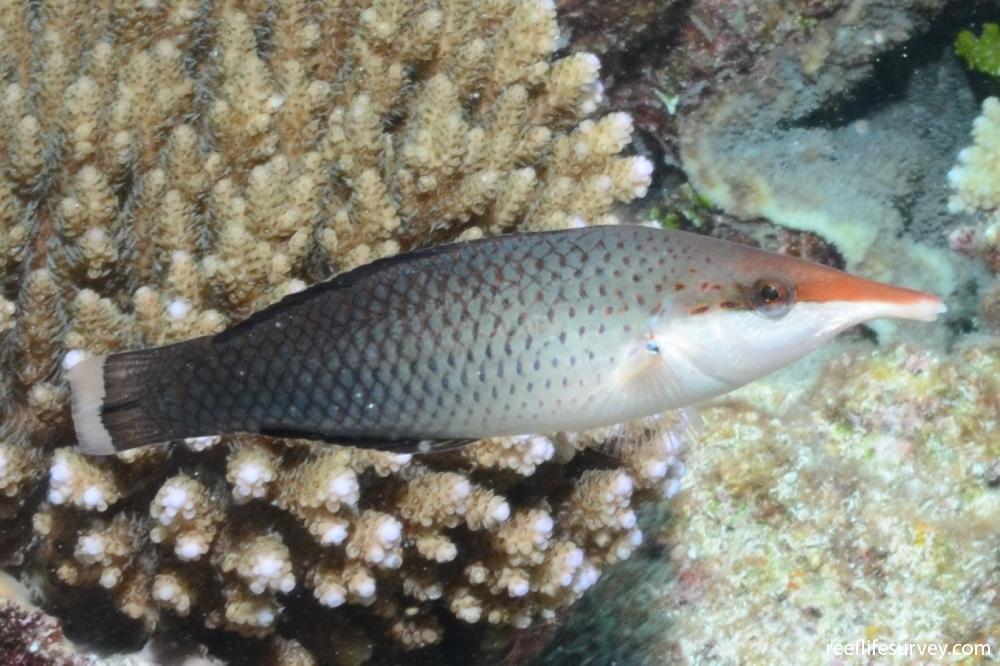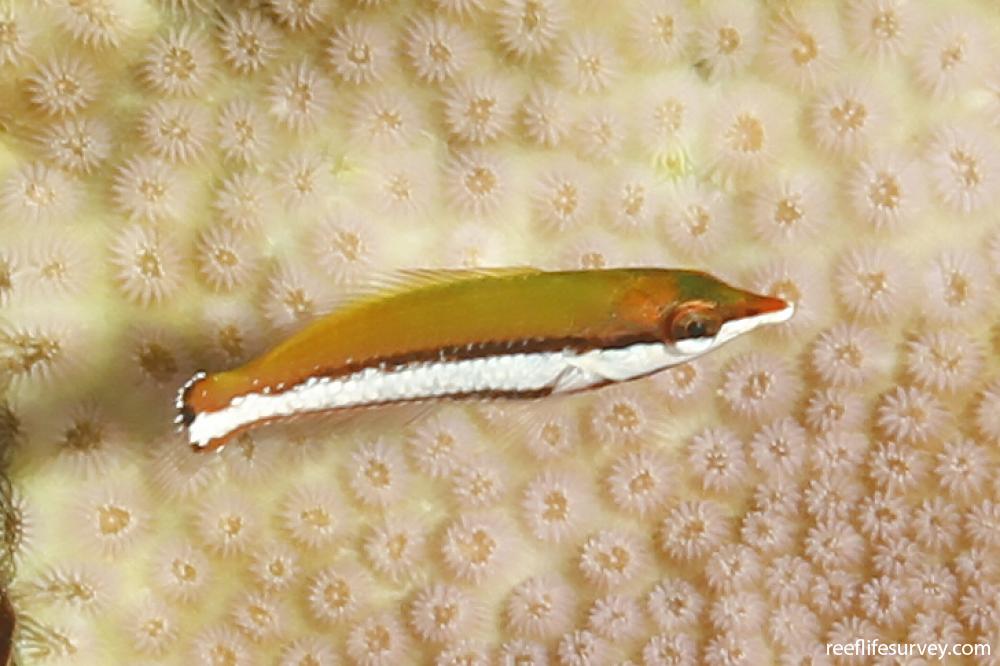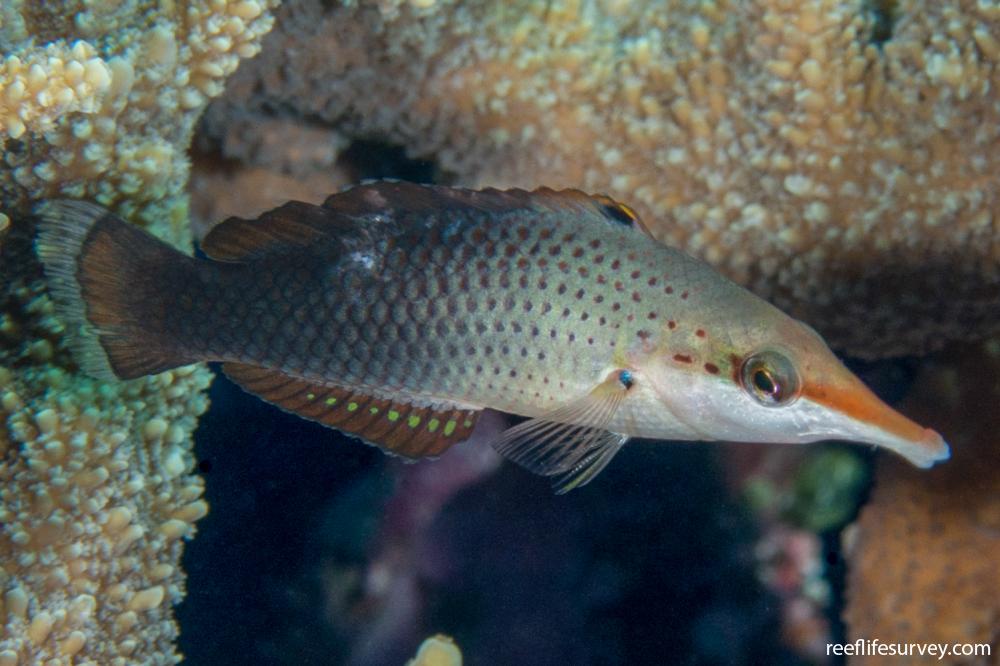Gomphosus varius
Bird-nosed wrasse | Bird Wrasse | Birdfish | Brown Bird Wrasse | Clubnosed Wrasse | Olive Club-nosed Wrasse | Purple Club-nosed WrasseSimilar Species
Same Genus
Distribution
Tropical Indo-Pacific
Description
Distinctive long 'beak-like' snout. Males dark green with a bright green vertical bar behind pectoral fin. Females with white lower head and breast, black rear body, front upper half of body light grey with rows of black spots, red snout. Juveniles with green back, thin black stripe, white sides, and another black stripe below. Differs from the Gomphosus caeruleus (Green Birdnose Wrasse) by location, and by males having light bar, females with black rear body and juveniles having green back.
Information
Max Size: 30 cm
Sea Temperature Range: 19.1-31.2°C
Depth: 1-35 m
Habitat Generalization Index: 33.13
Also referred to as the SGI (Species Generalisation Index), this describes the habitat niche breadth of the species. Species with values less than 15 are found in a relatively narrow range of reef habitat types (specialists), while those over 25 may be found on most hard substrates within their range (generalists). Learn more here.
Conservation and Rarity
IUCN Status: Least Concern
Occurrence: Widespread (55.9% of sites)
Occurrence describes how often the species is found on surveys within its distribution. It is calculated as the % of reef sites surveyed by RLS divers across all the ecoregions in which the species has been observed
Abundance: Few (4 per transect)
Abundance is calculated as the average number of individuals recorded per RLS transect, where present.
Edit by: Joe Shields













